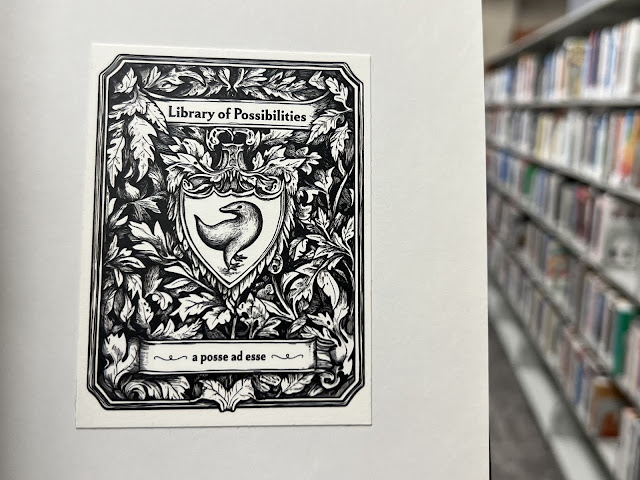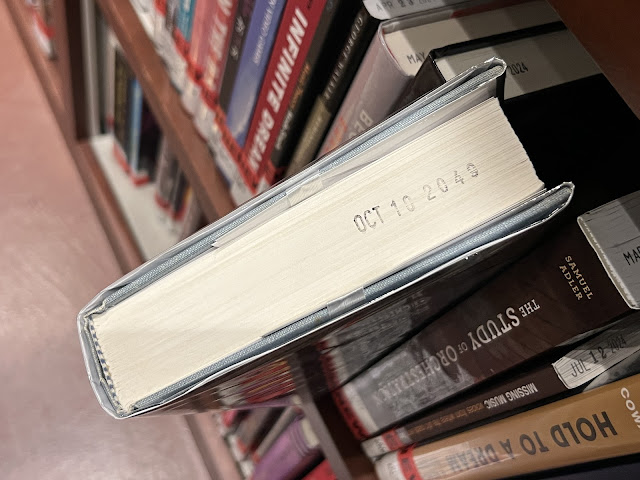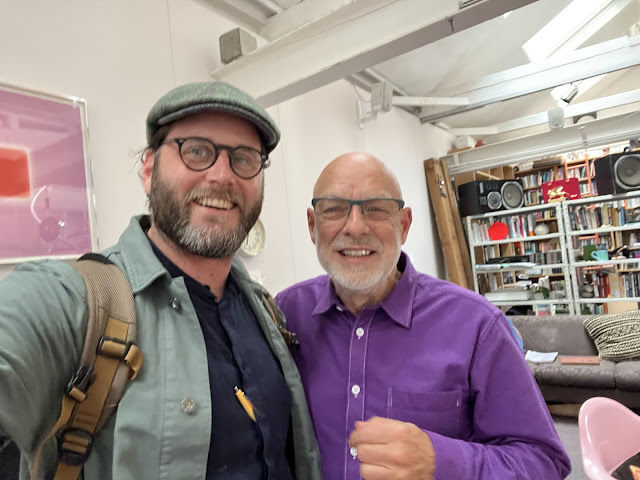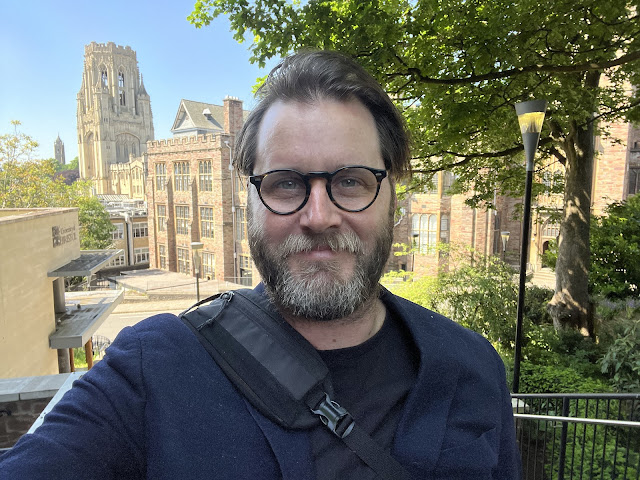Notes from our collaboration with Brian Eno on using music to grow public imagination.
This post is about a new initiative in progress – something I’ve really enjoyed working on, and have great hopes for as it unfolds.
Sing Wild Seeds is a project about having musicians and audiences pre-enact preferred futures together.
Conceptually, it springs from a question along these lines: how might music-making be combined with experiential futures towards developing our collective ability to imagine and shape desired change?
Institutionally, it’s a collaboration between the Joseph Rowntree Foundation (JRF) and Earth/Percent, both independent UK-based social change organisations, dedicated respectively to accelerating the “transition to a more equitable and just future”, and “unleash[ing] the power of music in service of the planet”.
Also centrally involved is Earth/Percent founder Brian Eno, a celebrated musician, producer, and expert collaborator in multiple artforms, whose extensive experience facilitating individual and group creativity has helped form the foundation for this effort.
To say a bit more about the idea behind the experiment – or series of experiments, really, as I’ll explain – the focus is on harnessing the promise and pleasures of worldbuilding on one hand, and musical co-creation on the other, to help people not just think or imagine but play and perform their way into future possibilities.
If this strikes you as different from the commonplace framing of futures in support of “strategy” or “decision-making”, you’re right. In a sense, this is upstream of those, aiming at some of the background or cultural context within which conscious decision-making occurs. And in a different sense, it’s downstream, in the detail of lived experience, a part of what I call the futures of everyday life.
This goes to a motivation that’s long been key to our practices of and arguments for experiential futures, towards developing a distributed cultural capacity, social foresight.
As I wrote in The Economist many years ago:
Driven by the irrepressible human urge to bring our inner worlds to life, the culture of public imagination is set to make a leap: in coming years we can expect to see more and more companies, governments, advocacy organisations and communities creating and sharing experiential futures. The sooner we learn to use and democratise collective imagination to dramatise our alternatives, the more powerful will be our capacity to shape change towards just and worthwhile ends.
Sing Wild Seeds could be seen at once as a datapoint exemplifying this forecast coming to pass, and as a conscious contribution to taking it further.
It’s a matter of what my collaborator Cassie Robinson of JRF, who initiated the project, has inspiringly framed as imagination infrastructures, a kind of “soil work”, gardening towards conditions favourable for certain kinds of things to grow. (I also find the cognate idea of acculturation a helpful rendering of this approach, and an important complement to organisational reflexes towards institutionalisation.)
We’ve worked together on several occasions over some years, but Cassie and I began talking about this particular project late in 02023, on the back of a series of conversations about social foresight and collective imagination.
We launched Sing Wild Seeds in March this year, with a hybrid online / in-person event in two parts: I gave an introductory presentation on foresight and experiential futures practices for a cohort of interested musicians, assembled from Brian’s network, then he and I had a conversation to begin exploring a bit more of what the possibilities might look like within our chosen design space.
Cultivating public imagination through music is an appealing creative prospect, and also a good practical challenge.
Our approach has been not simply to have musicians integrate richer or more deliberate futures imagining into their existing creative practices – because while helping professional music folks make “songs from the future” is super interesting, Sing Wild Seeds has a more ambitious and fundamentally more participatory notion at its heart.
The idea is to expose musicians to futures ideas and methods, and then to support them in devising site- and event-specific experiments where they in turn will engage live audiences in real time, co-creating and performing songs from the futures that they’d like to see (and hear) come to pass.
This comes with an inbuilt complexity; synthetic and nested.
Nested because the project has entailed devising and running a participatory process to help prepare the musicians in turn to devise and run their own participatory processes, particular to them, with later audiences elsewhere.
Synthetic because it has meant figuring out a way to mesh the musical gifts and creative preferences of a cast of songwriters / performers with two other sets of practices that in most cases are unfamiliar; one to do with the granular imagination and articulation of preferred futures, and the other to do with facilitation and process design.
Tackling this combination was an exciting prospect, and maybe just a little daunting, since not only were the particulars of the musicians’ own sensibilities and orientations impossible to plan for in advance – the ways artists write songs varies enormously – but the ultimate design parameters, practical elements of context in which they would eventually run something themselves (location, duration, format, audience size, cultural composition, etc), would not be found out until later either.
Last month, then, while I was in the UK, we held two in-person workshops at Brian’s studio in London, to try out some ways of helping folks navigate and identify the most promising sectors, for each of them, within the vast design space of potential project-experiments.
The wonderful designer Sarah Drummond was enlisted to co-facilitate, and to support the musicians going forward as they craft their experiments to carry out with festivals and other partners over the next few months. (Sarah is an exceptionally intuitive and adept facilitator; we’ve known each other for well over a decade but hadn’t a chance to work together directly before – and what a pleasure!)
I’d suggested that we offer this face-to-face project development workshop not once, but twice, on different dates, in order to reach a wider pool of potential collaborators, and also to enable a bit of reflection and iteration between runs. This structure worked well, allowing Sarah and me the chance to simplify and better integrate our process for take two.
It’s too early to start talking outcomes, but I doubt if it’s ever too early to start trying to learn from an ongoing process, so I’ll just remark briefly on a few aspects of the foresight part of the project.
I chose two contrasting points of departure for engaging our musician friends in futures imagination and songwriting ideation. One was quick, and deliberately time-pressured; a combinatorial prompting activity using The Thing From The Future card game (second edition). The other was more leisurely, taking the form of a guided meditation or daydreaming exercise; the sort of approach that my colleague Oliver Markley calls mental time travel.
The pair of contrasting tempos aimed to elicit different kinds of creative response: imagining fast and slow, you might say.
From the outset, in relation to the mental time travel exercise, I was specifically interested in going beyond guided visioning. The sense of sight often implicitly overrides all others when it comes to imagining alternative and preferred futures, so we invited guided listening, too – having folks attend especially to their auditory experience, along with other senses, during their inner journeys.
We used a time horizon of 30 years (02054) the first time, and 50 years (02074) the second. Although we were able to give the activity a bit more breathing room in workshop two, on both occasions, from the reams of notes that people took upon returning to the here-and-now and opening their eyes, and the animated conversations that followed, there was clearly much more to explore.
In relation to the card game, both meetings were highly generative, but the second provided an opportunity to fine-tune the prompting a bit.
With participants clustered in small groups of 2–3, one member was asked to select a card on behalf of their group, to indicate the type of preferred future or world that they would be creating a song from (e.g., a “fair” future, a “decolonised” future, and so on). The theme or aspect of that world which each person would focus on for their song was individually drawn from the deck at random (e.g. farming, the ocean, love, cities). And finally, I assigned to the musicians not just the generic output “song” as the future thing for them to create, but instead gave each one a particular kind of song to make from within their chosen future (e.g. anthem, show tune, folk song, etc).
(The Thing From The Future has been compared to, and at its inception over a decade ago was directly influenced by, Brian Eno’s own classic creativity-enabling card deck, Oblique Strategies, so there was a highly satisfying coming-full-circle quality in getting to deploy it with musicians in his studio!)
In addition, following one of Brian’s specific creative mandates that arose in workshop one, we ventured to insist on strict parameters: people had to finish a song corresponding to their personalised prompt within five minutes, then actually sing it.
While obviously the product of a highly compressed creative process, the resulting first-draft compositions from both gatherings truly exceeded expectations. They included a chanted exchange between different species seeking to peacefully inhabit the same planet, a future ballad about farming, a children’s song celebrating science, and a call-and-response performance recounting how humanity saved the oceans.
Modest as these beginnings are, there’s something potentially significant here as a kind of prefigurative politics (see TFOEL p. 220) in the use of music, not just as a social medium – which thankfully has been part of human society since time immemorial, and which has nothing necessarily to do with futures content per se – but on top of that, as a way into shared imagining of new possibilities.
We can make out a kind of double prefiguration: the desirable-in-itself investment in solidarity or community-making by creating and performing in a group, coupled with the roleplay-like composition and singing of lyrics deliberately formulated to bespeak, concretise, and summon the futures we hope to bring into being.
Politics is perhaps too small a word. If this doesn’t sound like a recipe for magic, I don't know what is.
The very first public deployment for Sing Wild Seeds has just taken place – at Britain’s legendary Glastonbury Festival, in an experiment led by the marvellous Genevieve Dawson (pictured at the top).
Many thanks are due to Cassie Robinson, Sepi Noohi and Magda Maculewicz from JRF, to Cathy Runciman and Becky Young from Earth/Percent, to my star of a process design and facilitation partner Sarah Drummond, to Brian Eno for generously hosting these gatherings, and to all our musical participants to date.
No doubt there will be more to say as these wild seeds take root.
Related:
> Experiential Futures: A Brief Outline
> Introduction to Experiential Futures in The Economist
> Dreaming Together (from the book Made Up: Design’s Fictions)
> What Is the Value of Futures and Foresight? (a Q&A with the RSA)
> Imagining Transitions (interview by Rob Hopkins)
> The Futures of Everyday Life
> Inside a bold new experiment in public imagination (on UNTITLED Festival)
> Participatory Futures for Democracy (see “acculturation”)
> Gaming Futures Literacy (PDF – from the book Transforming the Future)
> The Thing From The Future (see also Situation Lab website)
> Anything but Text (post anticipating XF from 02006)
> Historical pre-enactment
Note 1: All photos by the author. Note 2: A bookmark: to write up an assignment I once set for my (non-musician) graduate students at KAIST – creating and performing songs from various futures for Korea.
(Update 08aug2024: This post was also published on Medium.)


















